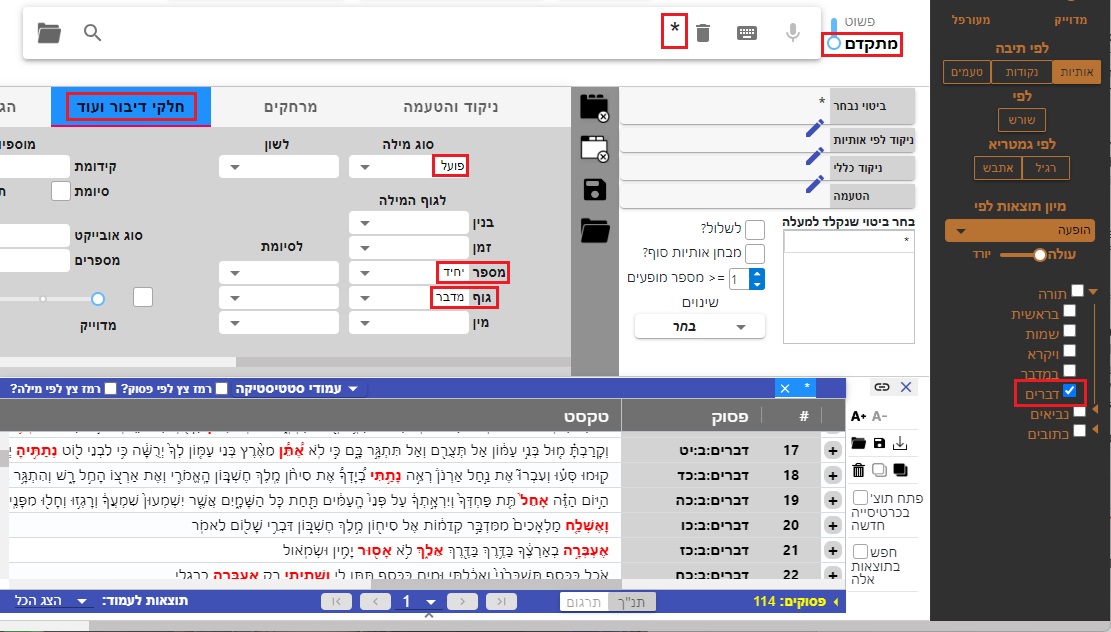In Devarim 2, Moshe recounts certain historical events. Pasuk 17 begins with Moshe retelling what Hashem told him and, therefore, at least initially, the first person is Hashem's voice (" כִּ֣י לֹֽא־אֶ֠תֵּ֠ן " in pasuk 19, for example).
By pasuk 23, the text speaks of Hashem in the third person ("כַּאֲשֶׁ֤ר עָשָׂה֙ לִבְנֵ֣י עֵשָׂ֔ו" -- as HE did to...) ". In 24 and 25 there is a first person speaking, taking credit for inspiring fear in the hearts of the enemies ("רְאֵ֣ה נָתַ֣תִּי בְ֠יָדְךָ֠" and "אָחֵל֙ תֵּ֤ת פַּחְדְּךָ֙") so the "you" is (I think) the nation, and the first person speaker is Moshe and he is taking credit for preparing the way for the nation's victory. Or maybe, it is Hashem preparing people with the fear OF Moshe (and Hashem is the 1st person speaker and the fear is of the "you", Moshe).
But then starting in pasuk 26, there are a series of singular verbs ("וָאֶשְׁלַ֤ח" ",אֶעְבְּרָ֣ה," "אָס֖וּר," "וְאָכַ֔לְתִּי וּמַ֛יִם בַּכֶּ֥סֶף תִּתֶּן־לִ֖י וְשָׁתִ֑יתִי רַ֖ק אֶעְבְּרָ֥ה בְרַגְלָֽי׃) which make it seem that the requester of permission to cross is a single person, Moshe. There is a subtle move back to the plural next, "עָֽשׂוּ־לִ֜י בְּנֵ֣י עֵשָׂ֗ו הַיֹּֽשְׁבִים֙ בְּשֵׂעִ֔יר וְהַמּ֣וֹאָבִ֔ים הַיֹּשְׁבִ֖ים בְּעָ֑ר עַ֤ד אֲשֶֽׁר־אֶֽעֱבֹר֙ אֶת־הַיַּרְדֵּ֔ן אֶל־הָאָ֕רֶץ אֲשֶׁר־יְהֹוָ֥ה אֱלֹהֵ֖ינוּ נֹתֵ֥ן לָֽנוּ".
By pasuk 30, there is an attempt to clarify "לְמַ֛עַן תִּתּ֥וֹ בְיָדְךָ֖" with the second person seeming to be the nation. The next pasuk then reintroduces nouns and numbers in a different direction.
Why would the request section be so explicitly singular? Is Moshe just asking for permission for HIMSELF? Is he making the point that the enemy is so evil, it wouldn't even allow one person to cross its land? Is he inconsistently using the singular for the nation?
Note -- one of the meforshim actually exacerbates the confusion! This is the text from pasuk 27: " בַּדֶּ֥רֶךְ בַּדֶּ֖רֶךְ אֵלֵ֑ךְ" but this is how it is listed in the Paaneach Raza on sefaria: "בדרך בדרך נלך." (I added the bold on the nun)
I didn't see any meforshim who focus on the singular/plural issues here -- any resources or explanation would be appreciated.

